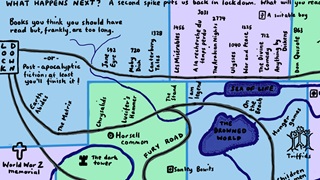
A simple question
Requiring a simple answer

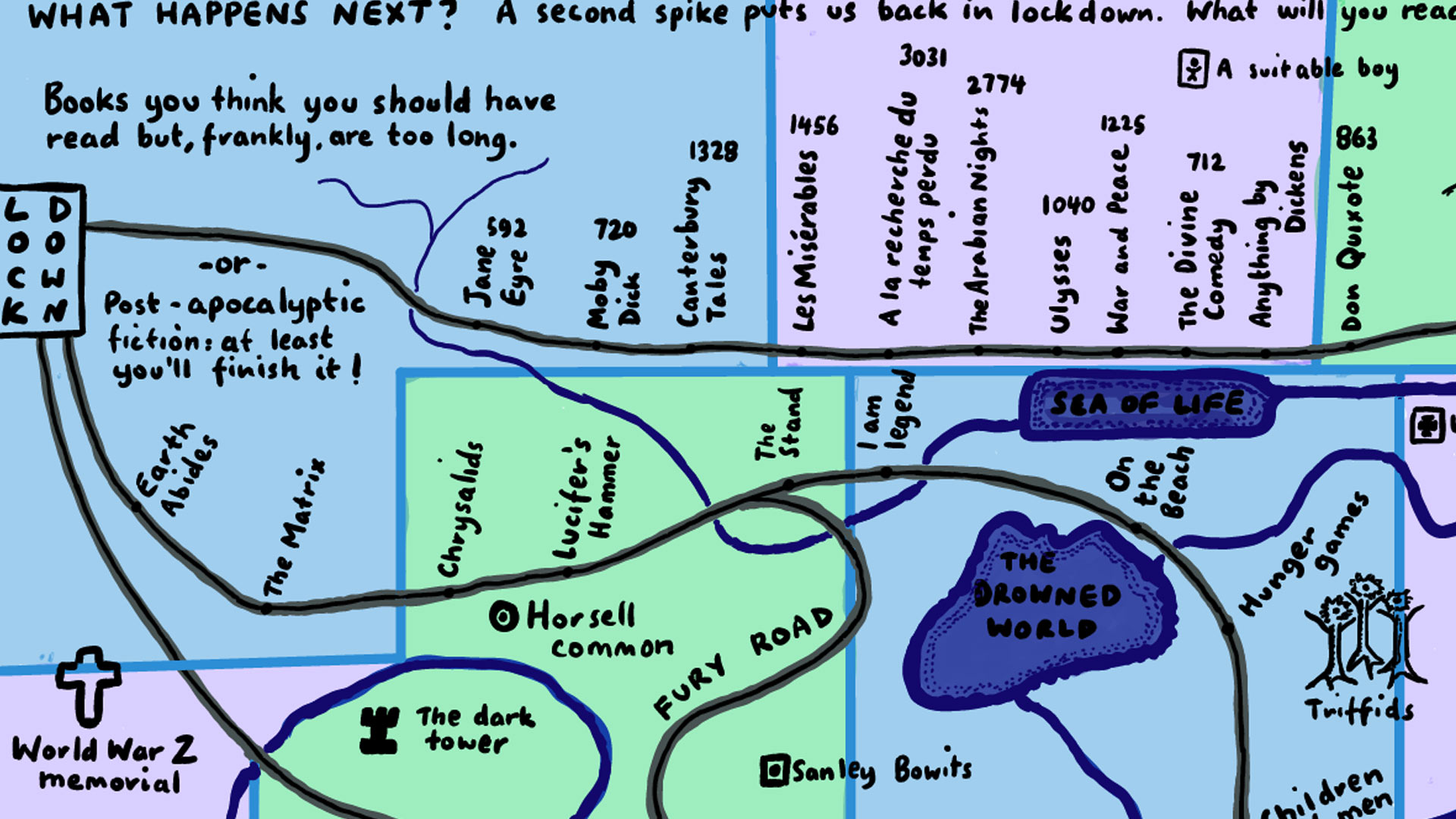
In 2018, we asked writers in Perth, Johannesburg and London to address the question of what it means now to be a reader. Have they stopped reading? Why?
Then we asked you.
It’s not so much that I’ve stopped a lifelong custom of reading every night but that my reading habits have evolved over the past thirteen years to accommodate the arrival of my four children.
My first child used to negotiate the number of books I should read to her before bedtime. She would start at five, I would counter with two, and we would end up with three or four, depending on at what point I lost the will to live, and capitulated to her demands. I became intimately familiar with, in some instances reacquainted with, the works of Emily Gravett, Oliver Jeffers, Julia Donaldson, Maurice Sendak and Tomi Ungerer. As Lucy grew older, we started reading ‘grown-up’ books, culminating with Albert Facey’s A Fortunate Life, a classic tale of life on the land in the early 1900s in Western Australia. After that, Lucy started reading to herself each night, for well over an hour. By then her younger sister had taken her place as my captive audience and, all in good time, we arrived again at A Fortunate Life, now a rite of passage in our family. Now I read each night to their younger brother; to my delight, his favourite writer is my father: Chris McKimmie, author and illustrator of at least twenty-five children’s books.
Once I get through A Fortunate Life with my youngest child, I intend to resume my nocturnal reading habits. Along with listening to music on vinyl, reading books printed on paper appeals to my inner Luddite. The last book I read for myself was by Bob Dylan: The Nobel Lecture. It’s a short read.
What? I read all the time. Tweets, hashtags, instructions on the baby porridge box. It’s no Lord of the Rings but the drama on Instagram is often epic.
I deleted Facebook, tried to read a real book. Seven books later, I find one that leads me in; I’m slightly hooked, reaching for my phone’s Kindle app between naptime and nappies; it’s YA fantasy, but don’t judge, what have you read lately? Two days and five chapters in, I’m getting itchy, my mind unable to sustain the suspense that is being created by these words, these endless words, just give me the Cliff Notes’ version. Wading in the shallows. I cave, Google the plot on Wikipedia and promptly abandon the book. But wait, I’ve read The Gruffalo, in full, four times today—seven if you count the half-readings that were interrupted by short attention spans (of the two-year-old and the infant, not me).
I hear two hours’ worth of talk about Michelle Obama’s autobiography, from Oprah’s network of podcasts of course, and I reach for my Amazon account, one-click buying. Five seconds later, the whole four hundred and forty-eight pages are in my hands. Typical time to read: 8 hours and 4 minutes, Kindle tells me. Just 8 hours and 2 minutes longer than The Gruffalo.
I used to read big books full of long words, but then my phone melted my brain. I spend all day staring at a big screen and the evening pawing at a small one. I am an addict and it is pathetic.
It is a spiralling issue; years of buying significantly more than I read means that the backlog is now an intimidating stack. I receive more each Christmas because relatives have not noticed I am no longer A Person Who Reads, and am now An Idiot. All more fodder for the stack.
I do still have it in me. On holiday this year, I wolfed down My Brilliant Friend by Elena Ferrante. It’s about Italy, I was in Italy. Fantastico! The next week, keen to maintain momentum, I bought the second book in the series. It was quite a lot larger than the first. I was no longer in Italy and had more reliable Wi-Fi. That book now lives in the stack.
Maybe the weekly phone usage reports now delivered each Sunday will shame me into action. Perhaps my thumb will fall off. More likely is that the appalling example it sets to my son, and the shameless hypocrisy with which I order him to get off the iPad and read a book, will lead to a family-wide rule system around screen time. We need saving from ourselves.
Internet speeds have freed us of the burden of taking in information through the energy-taxing process of reading words. Is it a surprise podcasts, audiobooks and Netflix are the new status quo? Single tear. Nathaniel S. Misri, Vancouver
My working days are long and sedentary, so when I have free time I prefer to be active. Going for a run is a great stress buster—books can wait. Rod Harrington, London
This year I finally got around to reading Orwell’s 1984 and its image of a dystopian society which has banned books. The ugly fate of the main character who clandestinely receives a book (almost) turned me off reading for good. Christophe Hug, Montréal
Between work and taking care of kids, there is no time left for myself. I have a stack of Japanese business management books (in Japanese) which, when I get to them, are pure pleasure. Kenji Nakajima, Los Angeles
I stopped reading simply because a legal career made time a little tight. Not just that. Reading long documents for work meant that reading books for pleasure became something of a busman’s holiday. The rest of my family are teachers and spend long chunks of the year devouring books. My parents have long extolled the virtues of being well-read, so I definitely feel ‘under-read’. I did recently read the Bob Woodward book Fear and that took me less than a week to get through, so I’m not an entirely lost cause. Matthew Longstaff, Calgary
My uncle is a professor of psychological and brain sciences. I once heard him laugh at people’s shared obsession with sitting down to finish a book. He showed me his book collection, and each book had several bookmarks. I now feel comfortable reading only a few chapters of a book, even out of order. I enjoy the insights even a short excerpt can provide. Nina Godiwalla, Houston
I stopped reading because, as it turns out, the good books are made into movies. Now if only I could find the time to go see a movie. Kyle Johnson, Calgary
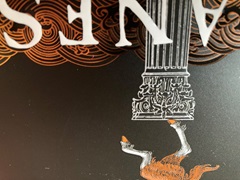
Piranesi. The Promise. Entangled Life. Destiny Disrupted | Choose two | Issue 20 | 2022
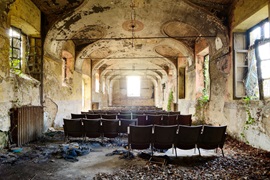
Gunnar Benediktsson on Chaplin's little tramp and Paul Klee's 'Angel of History' | Issue 19 | 2021
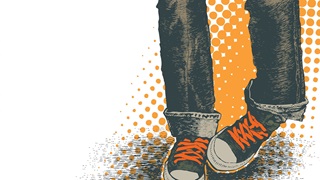
Books for teenagers, chosen by teenagers | includes Holes and The Book of Lost Things | Issue 8 | 2015
© Norton Rose Fulbright LLP 2025